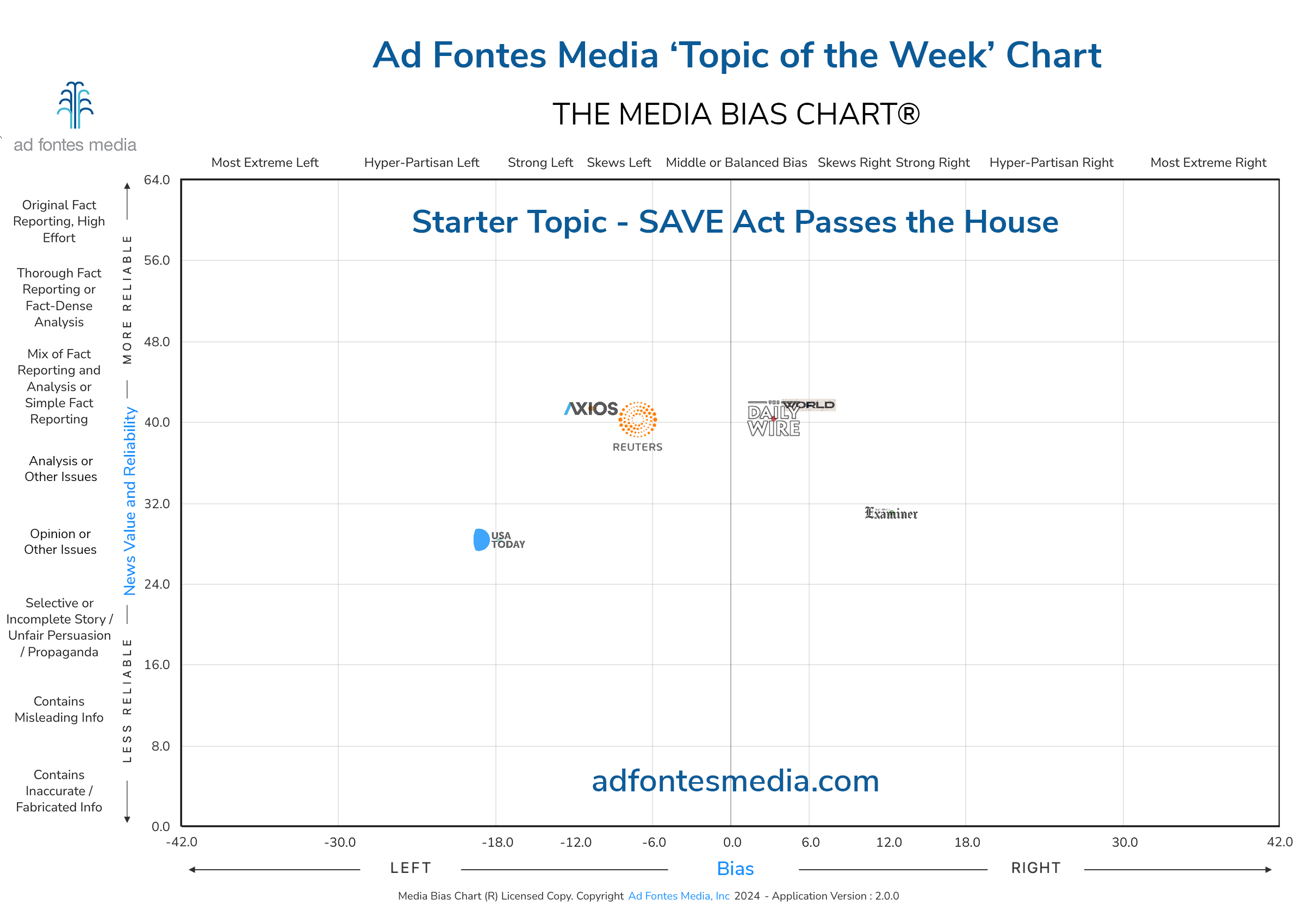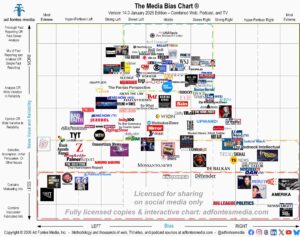
U.S. House of Representatives Passes the SAVE Act
Author:
Sara Webb
Date:
07/19/2024
On July 10, the U.S. House of Representatives passed the Safeguard American Voter Eligibility (SAVE) Act, which would ban noncitizens from voting in federal elections by requiring states to collect proof of U.S. citizenship before registering voters and to purge their voter rolls of noncitizens.
Republicans in the House introduced the SAVE Act on May 8, and we covered the bill initially in a blog post earlier this year. The bill now goes to the U.S. Senate for consideration, where it is expected to stall.
For the most part, Republicans praised the Act as a non-invasive way to protect voting integrity nationwide; Democrats noted that the SAVE Act would make it harder for American citizens to vote, with many citizens unable to access birth certificates or not in possession of a passport, and that it would disproportionately impact people in minority groups.
Our team examined media coverage of the SAVE Act’s passage from across the political spectrum in this week’s Topic of the Week. Each week, Ad Fontes Media chooses a widely covered trending news topic to share insight into how our analysts rank news coverage for the Media Bias Chart®. To do this, we select six articles reporting on the same story from different outlets to show how each treated the subject.
Using those sets of articles, pods of analysts with diverse political perspectives (one right leaning, one center, and one left leaning) read each article and use Ad Fontes Media’s content analysis methodology to determine its bias and reliability. These ratings inform the articles’ placement on that week’s special Media Bias Chart®.
Our analyst team examined the following articles about the passage of the SAVE Act in the House: “Scoop: Democrats whip against GOP’s latest election crackdown” from Axios, “Opposing the SAVE Act is a bad look for Democrats” from Washington Examiner, “House passes voter integrity measure” from World News Group, “Republicans really want you to think noncitizens are voting in droves. They’re not.” from USA Today, “US House approves Trump-backed bill on non-citizen voting” from Reuters, and “Biden Formally Opposes Bill Requiring Voters Prove Citizenship” from Daily Wire.
The ratings for each of these articles can be found on the website. In this blog we will take a deeper dive into the reporting from Washington Examiner and USA Today.
Washington Examiner is a conservative news website and weekly magazine based in Washington, D.C. Our analysts have rated several articles from this source and have given it an aggregate bias score of 11.64 (skews right) and reliability score of 34.4 (analysis or wide variation in reliability). Our analysts gave this week’s article a score of 12.33 for bias (strong right) and 31 for reliability (opinion or other issues).
The sarcasm in this article is strong from the start: “Imagine refusing to show your ID at the airport because, technically, you’ve already promised you’re not a threat. Sounds absurd, right? Yet, this is the logic 198 House Democrats employed when they voted against the Safeguard American Voter Eligibility Act.”
The article attacks the liberal base: “Opposing the SAVE Act certainly raises questions about the priorities of House Democrats. Ensuring that only eligible citizens vote in our elections is common sense and a necessary step toward restoring public confidence in our democracy.”
This author states that “public trust in our electoral system is at an all-time low” and argues that when “voter confidence is fragile, resisting measures that enhance verification processes is perceived as a failure to uphold the very principles of democracy.” This article was rated within the bounds of strong right bias and reflects popular right-leaning sentiment with these assertions.
USA Today is the flagship of the USA Today Network, a national digital media organization with headquarters in McLean, Virginia, and digital properties in 45 states. Our analysts have rated several articles from this source and have given it an aggregate bias score of -3.98 (middle or balanced) and reliability score of 41.18 (mix of fact reporting and analysis or simple fact reporting). Our analysts gave this week’s article a score of -17.67 for bias (strong left) and 28.33 for reliability (opinion or other issues) — a much stronger left bias and lower reliability score than usual; let’s dig in.
The “Elections Opinion Author” for this article isn’t holding much back, questioning the need for the SAFE Act at all: “Another week, another group of Republicans trying to stir up controversy for the sake of winning votes… They’re trying to fix a problem that doesn’t exist as part of the ongoing scare tactics campaign Republicans are committed to.”
The article cites an audit conducted in 2016 in North Carolina that found “out of 4.8 million votes cast, there were just 41 instances of legal immigrants – people who were most likely waiting to become naturalized citizens – voting fraudulently.”
The bias in this article comes from the near constant rebukes of Donald Trump and the Republican Party, who, it says, would “rather demonize a marginalized group of people and stoke fear.” Why rewrite the law?, it asks: “Because it’s how you juice voter turnout – and keep your political enemies disenfranchised.”
These are just two examples of the tens of thousands of articles our analysts have rated for reliability and bias. If you want a look at the larger media landscape or are curious to see how our analysts have rated your favorite sources, visit our website and check out the resources we have available. And don’t forget to come back for another examination of our Topic of the Week.
If you want to stay informed on all of our amazing work, join our free mailing list!


